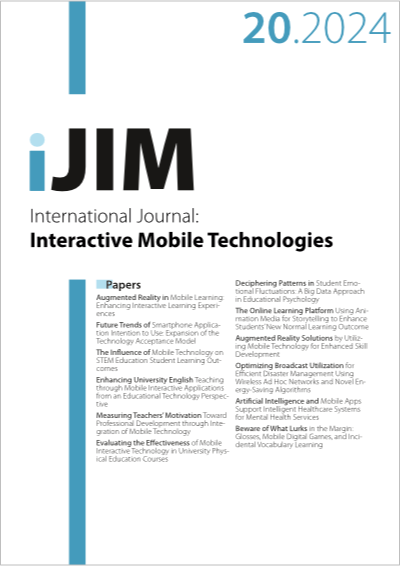Artificial Intelligence and Mobile Apps Support Intelligent Healthcare Systems for Mental Health Services
DOI:
https://doi.org/10.3991/ijim.v18i20.50743Keywords:
m-health, Artificial intelligence, mobile apps, mHealth application, mobile device networkAbstract
Patients and healthcare practitioners have commended the systems’ effectiveness, ease, and user-friendliness in several situations. Utilizing cutting-edge ideas and methods from the multidisciplinary domains of electricity, computing, medical engineering, and medicine, mobile healthcare (m-health) technology advances these professions’ contributions to healthcare systems. The monitoring and delivery of healthcare interventions are becoming increasingly dependent on mobile phones. Because of their sophisticated processing functions, improved preferences, and wide range of capabilities, they are frequently referred to as pocket computers. Their advanced sensors and intricate software programmers increase the viability and innovation of m-health solutions. To design the m-health application, the design science research methodology (DSRM) framework was used. Additionally, the architecture for connecting the hospital information system and mobile device network together was established. Additionally, a few exemplary intelligent healthcare applications are examined to demonstrate how data analytics and mobile computing can be used to improve the quality of healthcare services.
Downloads
Published
How to Cite
Issue
Section
License
Copyright (c) 2024 R.Jeya, Hezerul Abdul Karim, Sarina Binti Mansor

This work is licensed under a Creative Commons Attribution 4.0 International License.



